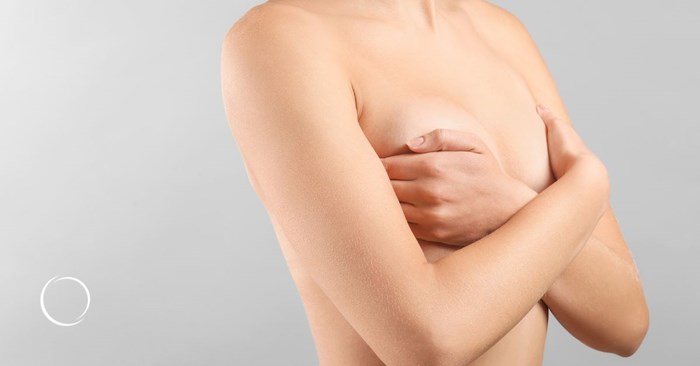Here's what you need to know about capsular contracture

Potential risks and complications of breast implants need to be considered if you have had a breast augmentation or are contemplating one. After all, as safe as they are, implants are not free of the potential for a complication known as capsular contracture. It's a term that can be both confusing and concerning.
So, let's break it down with insights from ASPS Member Surgeons Kristy Hamilton, MD, FACS, and Anita Kulkarni, MD.
What is capsular contracture?
Capsular contracture is when the scar tissue naturally forming around a breast implant tightens and becomes unusually hard.
"Everyone is going to form a capsule around their implant. Not everyone will get capsular contracture. And when patients do get it, there are varying degrees of how severe it may be," said Hamilton. "Whether you've got a pacemaker, breast implants or a splinter, whatever it is your body is going to wall that off with a thin sheet of scar which we call, for breast implants, a capsule."
The formation of the capsule is the body's normal l response to the presence of a foreign body. It is an accepted part of the breast augmentation process and is usually harmless.
"A normal capsule is thin, it's pliable, it's essentially translucent," said Hamilton. "That's a normal, healthy capsule."
The problem occurs when the capsule hardens and squeezes the implant. This squeezing can cause the breast to feel painful and hard as well as look abnormal.
Prevalence of capsular contracture
Breast augmentation is the second most popular plastic surgery procedure, with nearly 300,000 women choosing it for themselves in 2022. Statistically, some degree of capsular contracture will affect about one in six of these women.
"I don't think it happens to enough women to deter women from getting implants, but it's important to know that the risk is present," said Kulkarni. "The vast majority of women who have implants do not develop capsular contracture."
Grades of capsular contracture
- Grade I: The breast feels normal and looks natural.
- Grade II: Slightly firm but appears normal.
- Grade III: More firmness and an abnormal appearance.
- Grade IV: Hard, painful, and looks abnormal.
"If capsular contracture develops, how bad it is depends on the case," said Kulkarni. "There are many women who have a mild capsule that does not have a significant impact on their quality of life. However, a small subset of women will go on to develop pain or develop recurrent capsular contracture after capsulectomy and implant replacement. In those rarer cases, it can be very difficult for patients."
The actual cause of capsular contracture is unknown, but theories range from bacterial contamination to the body's immune response. Genetics and the type of implant used may also play roles.
Prevention during surgery
Preventative measures during surgery are crucial. Hamilton highlights the importance of sterility.
"We are always very meticulous when it comes to sterility in general," said Hamilton. "I like to use a specialized funnel called the Keller Funnel. It's basically like a sterile slippery pastry bag that I drop the breast implant into. Then I use that to bypass the skin with the least amount of contamination and the most sterility possible."
She also mentions bathing implants in antimicrobial solutions as an extra step. In addition, Hamilton said placing the implant under the chest muscle leads to fewer cases of capsular contracture.
Postoperative care: Breast self-massage
Regular breast self-massage after surgery can help maintain the softness of the capsule, potentially reducing the risk of capsular contracture. This practice involves gentle movements to keep the capsule flexible. Most plastic surgeons recommend daily breast massage for the lifetime of the implants.
Addressing capsular contracture
If capsular contracture occurs, treatment options vary based on severity. They can range from medication to surgery, such as capsulectomy or implant replacement. Aspen multi-energy therapy uses ultrasound waves to increase capsule elasticity and return the breast to a soft, pliable state.
Making the best decision possible
Understanding the potential for capsular contracture is essential for anyone who has (or is considering) breast implants. This condition, though not extremely common, can range from mild to severe, affecting the feel and appearance of the breasts and causing pain. It's crucial to understand that even when all precautions are taken, it's still possible to develop capsular contracture.
Yet, choosing a board-certified plastic surgeon who is an ASPS Member Surgeon can help ensure that preventative measures are taken during surgery and that you receive proper postoperative care, giving you the best possible chance of a complication-free breast augmentation.
To find a qualified plastic surgeon for any cosmetic or reconstructive procedure, consult a member of the American Society of Plastic Surgeons. All ASPS members are board certified by the American Board of Plastic Surgery, have completed an accredited plastic surgery training program, practice in accredited facilities and follow strict standards of safety and ethics. Find an ASPS member in your area.
